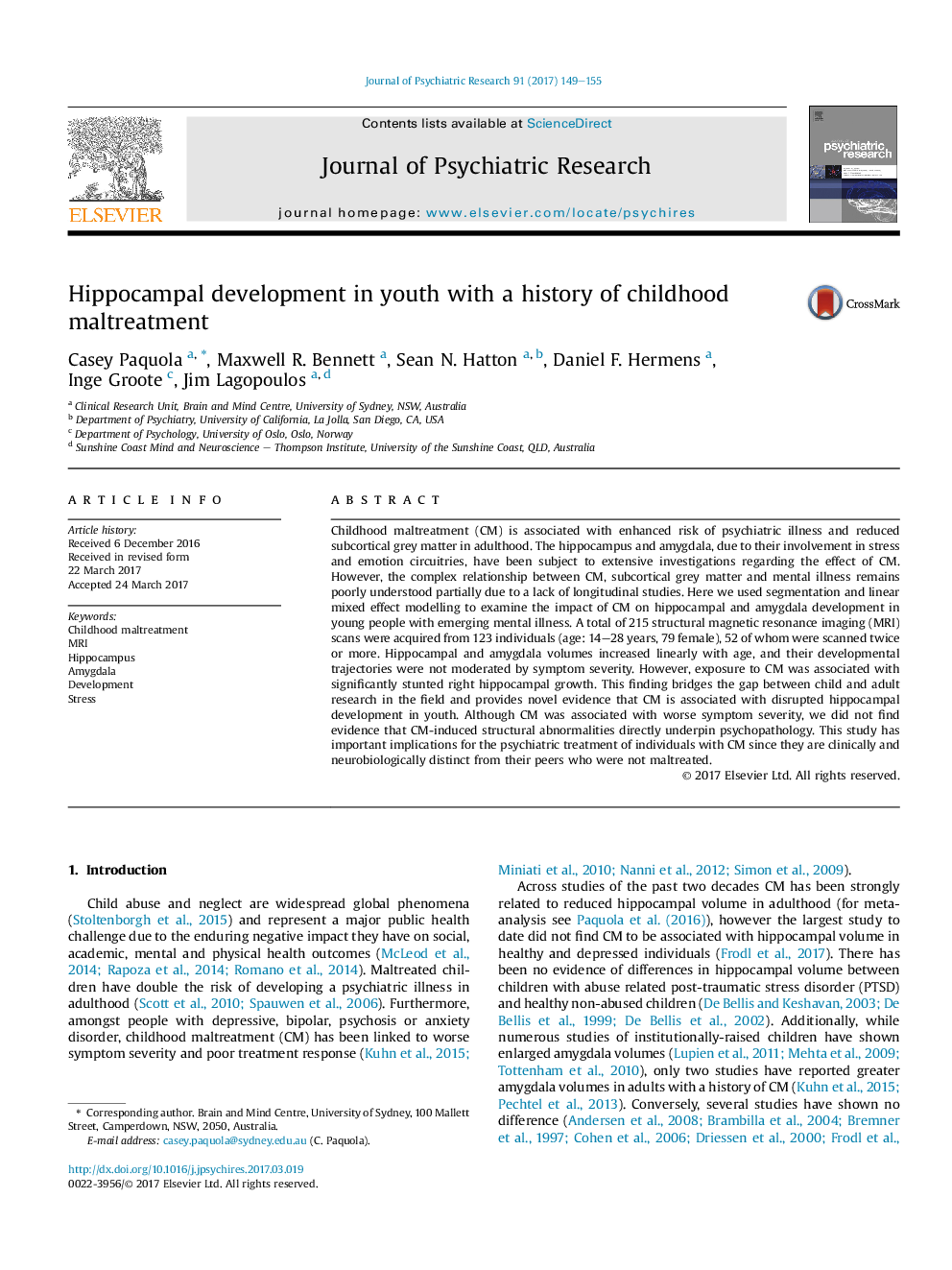ترجمه فارسی عنوان مقاله
توسعه هیپوکامپ در جوانان با سوءاستفاده از دوران کودکی
عنوان انگلیسی
Hippocampal development in youth with a history of childhood maltreatment
| کد مقاله | سال انتشار | تعداد صفحات مقاله انگلیسی |
|---|---|---|
| 127689 | 2017 | 7 صفحه PDF |
منبع

Publisher : Elsevier - Science Direct (الزویر - ساینس دایرکت)
Journal : Journal of Psychiatric Research, Volume 91, August 2017, Pages 149-155

